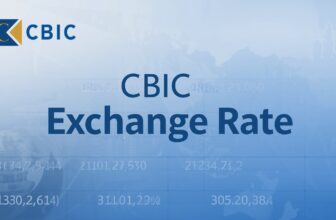
Forex trading is quite daunting to new entrants. An excellent way to start exploring this complex world is by using a forex demo account. The accounts will permit traders to practice their trade with virtual funds, risking nothing, and eventually they will be able to gain enough confidence to make the step forward to a live account.
The use of a demo account does more than strengthen the trading strategy, as it provides the ability to experiment on the trading platform. In the different systems I’m experiencing, what is going to be realized is quite informative regarding how the markets behave and do not put actual money at risk in the process. It can easily be a precursor for understanding subtleties within currency trades and what creates changes in value.
With powerful demo accounts now being offered by most brokers, there never has been a better time to begin your trading career. Virtual trading can often be a precursor to an excellent trading career since one is given the opportunity to test the waters in a secure environment.
Key Takeaways
- A forex demo account allows for practice trading without financial risk.
- It helps traders develop and test their trading strategies.
- Many brokers provide free demo accounts with various features.
Understanding Forex Demo Accounts

Forex demo accounts are essential tools for anyone looking to learn about trading in the foreign exchange market. They offer a risk-free environment where I can practice my trading skills without using real money. Here’s what I’ve found about their main purposes and the benefits they provide.
Purpose of Demo Trading Accounts
The main purpose of a demo trading account is to simulate real trading conditions. This allows me to get familiar with the trading platform, such as MetaTrader 4. Demo accounts offer virtual funds, which I can use to execute trades in a simulated market environment. I can explore different trading strategies and tools without worrying about financial loss.
These accounts are typically offered by forex brokers and are meant for both beginners and experienced traders. By using a demo account, I can sharpen my skills and build confidence before opening a real account. It helps bridge the gap between theoretical knowledge and actual trading experience.
Benefits of Practice Trading with Virtual Money
Using a demo account has several benefits. First, it allows for risk-free trading. I can test my trading strategies and make mistakes without monetary consequences. This is particularly valuable for learning how to manage risks.
In addition, demo accounts serve as an educational tool. I can learn trading basics, market trends, and how to read charts effectively. Most demo accounts come with features similar to live accounts, including trading tools and customer support, enabling me to receive guidance as I learn. This practice prepares me for the challenges of live trading, which often includes emotional and financial pressures.
Switching to a demo account can enhance my understanding of the forex market before I commit real money.
Choosing the Right Demo Account

Selecting a suitable demo account is key for effective forex trading practice. It allows traders to explore and understand how different platforms work, test strategies, and familiarize themselves with market conditions without risking real money. Here are the important factors to consider.
Key Features of Top Forex Demo Accounts
When I look for the best forex demo accounts, a few features stand out. First, the trading platform must be user-friendly. Platforms like MetaTrader 4 (MT4) and MetaTrader 5 (MT5) offer various tools for analysis and trading.
Second, the demo account should mimic real trading conditions. This includes the available leverage, spreads, and order execution speed. I prefer accounts that allow me to practice with virtual money that reflects current market scenarios.
Lastly, a good demo account needs a long expiration period. Many brokers provide 30 to 90 days, but I look for those with no set expiration. This way, I can continue practicing as I refine my skills without any time pressure.
Comparing Forex Brokers for Best Practice Experience
Choosing the right forex broker can greatly enhance my demo trading experience. I compare factors like the variety of trading instruments offered. Some brokers focus solely on forex, while others provide access to CFDs, stocks, and commodities.
I also consider the educational resources available. Brokers that offer tutorials, webinars, and demo account guides are valuable for building my trading knowledge.
Moreover, the customer support of a broker is essential. If I have questions or run into issues, I want quick, knowledgeable assistance.
Lastly, I assess the broker’s reputation. I check reviews and regulatory compliance to ensure a trustworthy trading environment. This helps me feel more secure during my practice trading sessions.
Exploring Trading Platforms

The choice of a trading platform can greatly influence my trading experience. I find that understanding the features available can help me choose the right one for my needs, whether I’m a beginner or more experienced.
The World of MetaTrader
MetaTrader is one of the most popular trading platforms in the forex market. I often use MetaTrader 4 (MT4) and MetaTrader 5 (MT5) for their powerful tools. Both versions offer customizable charts and real-time pricing, which are essential for analyzing the market.
MT4 is known for its simplicity and is great for beginners. It includes features like automated trading through Expert Advisors. MT5, on the other hand, offers more advanced options, such as additional timeframes and technical indicators.
When I explore these platforms, I appreciate their user-friendly interfaces. They allow me to set up my workspace exactly how I like it, enhancing my trading efficiency.
Web and Mobile Access
Today, trading is not limited to a desktop setup. I value platforms that offer both web and mobile access. This flexibility allows me to trade anytime, anywhere, which is crucial for staying on top of market changes.
Most brokers provide a mobile app that mirrors the capabilities of their desktop platforms. With these apps, I can manage trades and view charts on the go.
Additionally, web platforms do not require downloads, making it easy to access my account from any device. This means I can quickly check trends and respond to market movements without being tied to my home setup.
Developing Trading Strategies

Creating effective trading strategies is essential for success in the forex market. I focus on using indicators and drawing tools to enhance my decision-making. Transitioning from demo trading to live markets requires careful planning and confidence in my strategies.
The Role of Indicators and Tools
Indicators are vital in shaping my trading strategies. They provide insights into market trends and help predict future price movements. I often use tools like moving averages, RSI, and MACD to analyze price data.
Drawing tools also support my strategy development. Trend lines and Fibonacci retracements assist in identifying support and resistance levels. By practice trading on a demo account, I can experiment with different indicators and assess their effectiveness without risk.
Using these tools helps create a disciplined trading approach. I learn to enter trades based on signals rather than emotions, which is crucial in the fast-paced forex environment.
From Demo Trading to Live Markets
Transitioning from a demo trading account to live trading can be challenging. I make this shift only after gaining confidence through simulation. This practice allows me to understand market behavior and test my strategies.
In live markets, my focus intensifies. I must remain disciplined and stick to my strategy. It’s essential to manage risk as the stakes are higher. I always review my demo performance to adapt and refine my approach before going live.
Understanding how real money impacts decision-making is critical. I ensure that I’m prepared emotionally and strategically for this change, setting myself up for success in the competitive forex market.
Transitioning to a Live Account

Moving from a demo account to a live account is a critical step in trading. I focus here on understanding the various types of live accounts and the importance of risk management when trading in real financial markets.
Understanding Live Account Types
Before you start trading forex, it’s crucial to understand different account types offered by the best forex brokers. While forex demo accounts for 2024 are excellent for practice, knowing live account options is essential. Most brokers provide various choices for online trading.
- Standard Accounts typically require a higher initial deposit but offer lower spreads, appealing to experienced traders. Remember that retail investor accounts lose money frequently when trading complex instruments.
- Mini Accounts allow for smaller trades, ideal for beginners. Before you open an account, consider whether you understand how CFDs work and whether you can afford to take the high risk.
- Micro Accounts are perfect for those who want to use demo mode first, requiring minimal capital. Note that trading forex and CFD trading come with a high risk of losing money rapidly due to leverage.
Choosing the right account type impacts your trading strategy and potential profitability. Before transitioning from a forex trading demo account to live trading, carefully consider your goals and risk tolerance.
Risk Management in Live Trading
Risk management is vital since accounts lose money when trading without proper strategies. A forex trading demo account provides excellent practice, but real trading carries the risk of losing money rapidly.
Before you open a demo account or live account, understand that complex instruments and come with significant risks. Using stop-loss orders helps limit potential losses, especially in mobile trading platforms.
Additionally, it’s essential to understand leverage and margin. Including forex in your investment portfolio requires careful consideration of whether you can afford to take the high risk. This careful approach helps minimize the chance of losing money rapidly due to leverage.
Learning Resources and Support
Having access to comprehensive resources when you use demo accounts is crucial for success in trading forex. Most platforms offer both desktop and mobile trading capabilities.
Leveraging Educational Resources
Many brokers providing forex demo accounts for 2024 include extensive educational materials. Before starting to trade with real money, consider whether you understand how CFDs work through these resources:
- Video tutorials for various trading platforms
- Webinars about risk management
- Guides explaining why retail investor accounts lose money
- Training on complex instruments and their risks
Customer Service and Support
Quality support is essential when you open a demo account or transition to live trading. The best forex brokers offer:
- 24/7 customer service
- Multilingual support
- Dedicated help for both demo and live accounts
- Assistance with mobile trading features
A forex trading demo account provides a safe environment to learn, but remember that live trading, including forex and CFDs, carries a high risk of losing money rapidly. Always consider whether you can afford to take the high risk before moving to real trading.
Advanced Features and Tools
The forex industry offers various advanced features in versatile trading platforms, particularly when you choose a forex demo account. These tools help forex traders analyze data effectively while trading in the financial markets without risking real money on a demo account.
Utilizing Advanced Charting Tools
Advanced charting tools are essential for meeting your trading needs. The best trading platforms enable you to test trading ideas and develop strategies via demo account features. I find the difference between a demo trading environment and live trading becomes smaller with quality tools.
An MT4 demo account provides sophisticated charting options where you can:
- Apply multiple technical indicators
- Practice futures trading strategies
- Test virtual trading scenarios
- Explore paper trading account features
Many top demo platforms available for trading include features that help you understand forex basics. Using advanced charting tools on a broker’s trading platform can significantly improve your trading experience before moving to real trading accounts.
Exploring Different Trading Instruments
When you open a free forex demo account, you can explore various trading instruments. The best forex trading experiences often come from forex and CFD broker platforms that offer demo accounts with comprehensive features. For example, platforms like TastyFX demo accounts provide access to:
- Currency pairs
- Commodities
- Indices
- CFDs
- Futures contracts
The range of trading options available to demo users helps traders understand market dynamics. Whether you’re involved in trading currencies or other instruments, demo platform experience is invaluable. Many brokers covering forex offer extensive educational resources alongside their trading tools.
Before you open a free forex trading account, it’s worth exploring different demo accounts today. This helps ensure you choose a forex broker that matches your trading style. Understanding various instruments through virtual trading prepares you for the challenges of real market conditions.

















